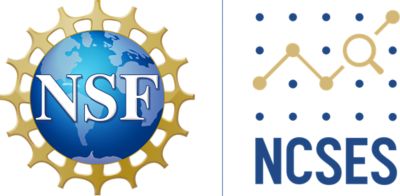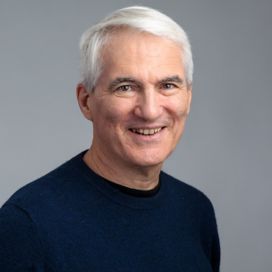Survey of Doctorate Recipients

The NCSES within the NSF is responsible for understanding the educational and career outcomes of U.S.-trained science, engineering, and health (SEH) research doctorates.
The National Science Foundation Act of 1950 requires the NSF to “provide a central clearinghouse for the collection, interpretation, and analysis of data on scientific and engineering resources, and to provide a source of information for policy formulation by other agencies of the Federal Government...” This includes understanding the trajectories of U.S.-trained SEH research doctorate holders through the conduct of the SDR.
Sponsored by the NSF and the National Institutes of Health, the SDR is the only comprehensive source of data on the careers of the most highly trained scientists and engineers coming out of U.S. educational institutions. It provides essential data on the education and training, work experience, career development, and demographics of this critically important population. The data inform program and policy decisions of businesses, government agencies, and universities.
NORC has surveyed doctorate recipients for a quarter century.
NORC has conducted the 2023 SDR and will conduct the next SDR cycle after having previously conducted the 1997 cycle and biennial SDR data collections from 2003-2017. The SDR uses a fixed panel design that is augmented with a sample of new doctoral graduates added each survey cycle. The study follows sample members through age 75.
The current SDR sample includes more than 100,000 doctorate holders in the U.S. and around the world. The geographic dispersion and the diversity of their career tracks makes successfully conducting the SDR an exciting and challenging endeavor. Using tailored outreach and high-quality searching and contacting tools, NORC consistently achieves high response rates, resulting in representative and reliable data delivered to NCSES/NSF and research stakeholders.
Up-to-date data sheds light on the careers of the most highly educated people in science, engineering, and health.
The SDR provides data necessary to assess the supply and characteristics of U.S.-trained SEH doctorates employed in educational institutions, private industry, professional organizations, and government in the United States, as well as in other countries worldwide. Working collaboratively with NCSES, NORC has helped the Agency transform the SDR over multiple survey cycles.
NORC’s work has been instrumental in critical survey improvements including:
- Introduction of an online survey to improve data quality and survey participation
- Expansion of the sample to allow for estimation by fine field of degree and to provide fully integrated coverage of U.S.-trained doctorates living in and out of the U.S.
- Refinement of locating and data collection tools to find and reach SEH doctorate holders around the world thereby producing more comprehensive and insightful data
- Implementation of an innovative approach for continuously monitoring data results and quality throughout data collection
- Contribution to sample design expert panels to help SDR expand its analytic capacity for longitudinal analyses
During each survey cycle, NORC aims to enhance and improve the project’s processes from sampling through report production to ensure NCSES/NSF is optimally served and best positioned to make critical decisions about the U.S.-trained SEH doctorate population.

Are You an SDR Participant?
Questions about the survey? Experiencing technical difficulties? Contact the SDR Study Staff at:
Related Tags
Project Leads
-
Karen Grigorian
Vice PresidentProject Director -
Shana M. Brown
Senior Research DirectorSenior Staff -
Lance A. Selfa
Principal Research ScientistSenior Staff -
Don Jang
Vice PresidentSenior Staff -
Benjamin M. Reist
Principal StatisticianSenior Staff












